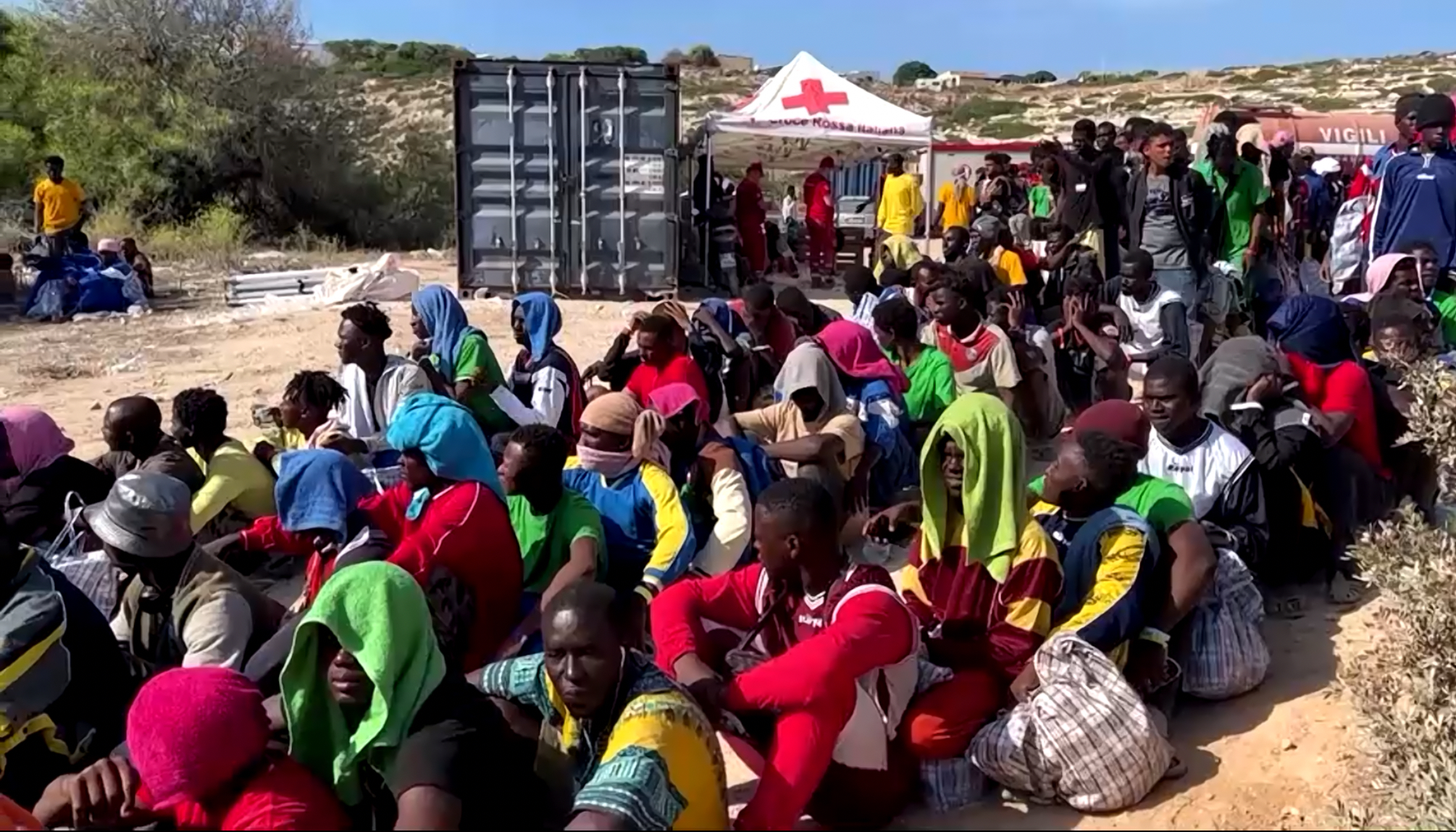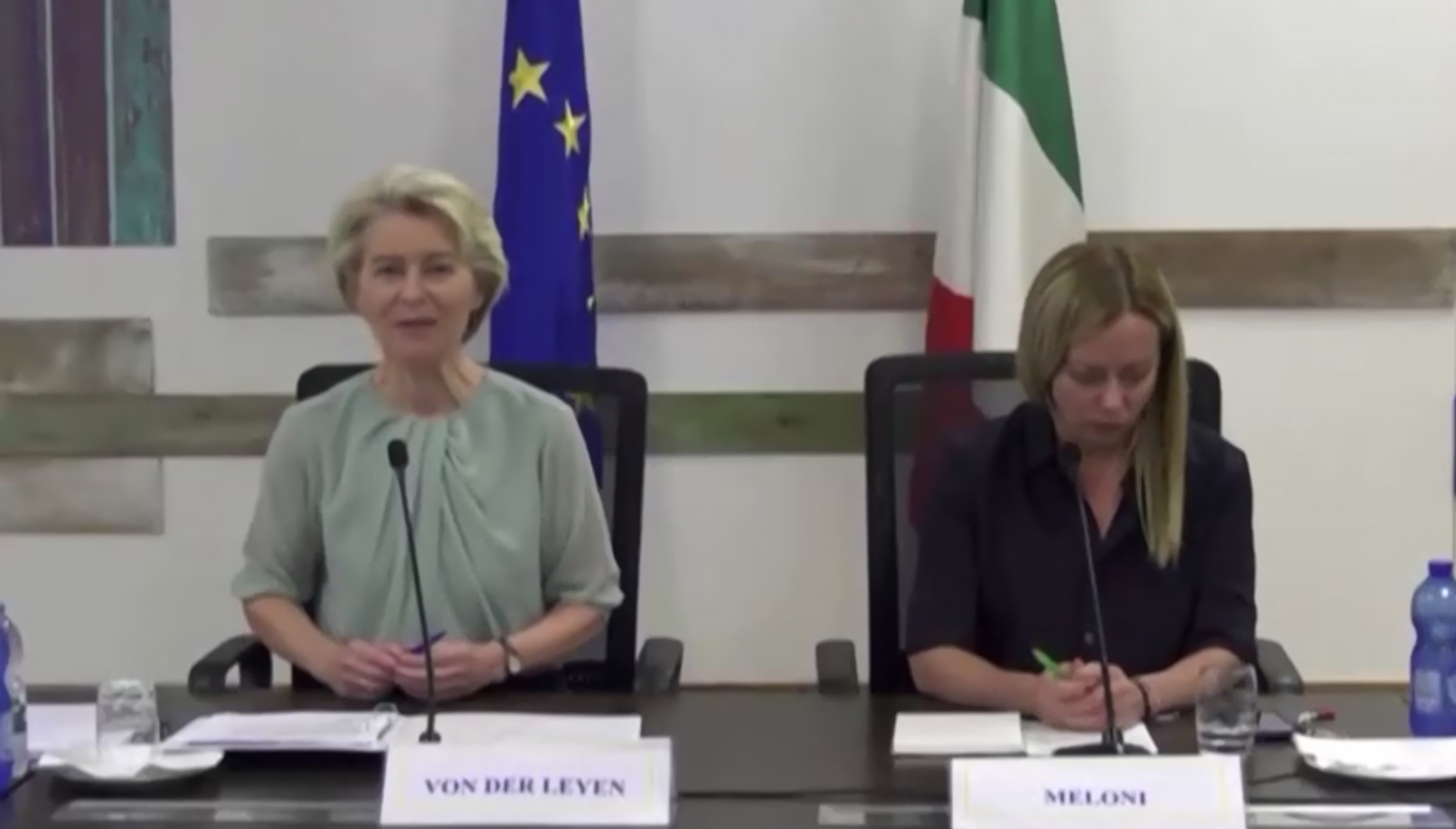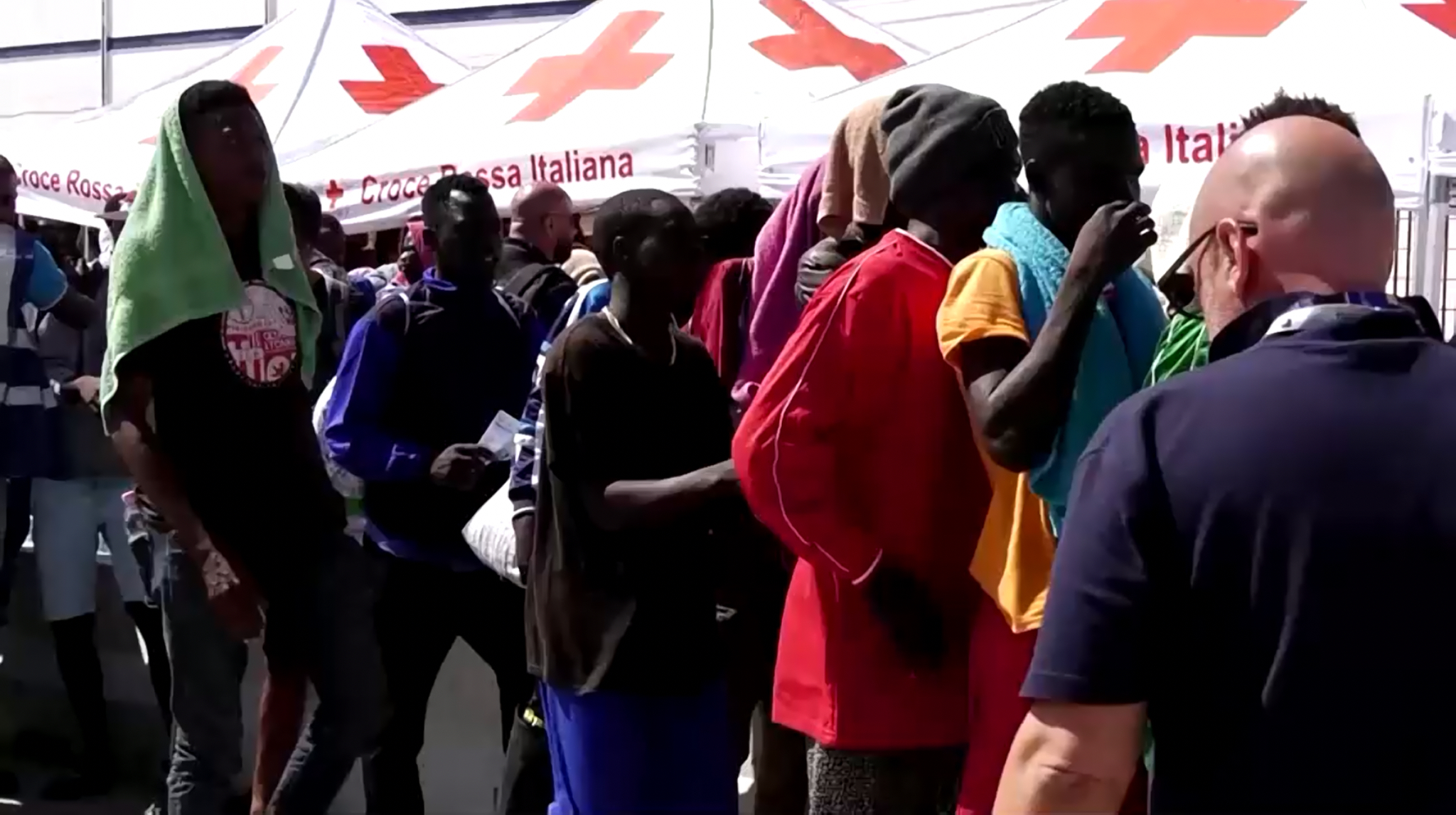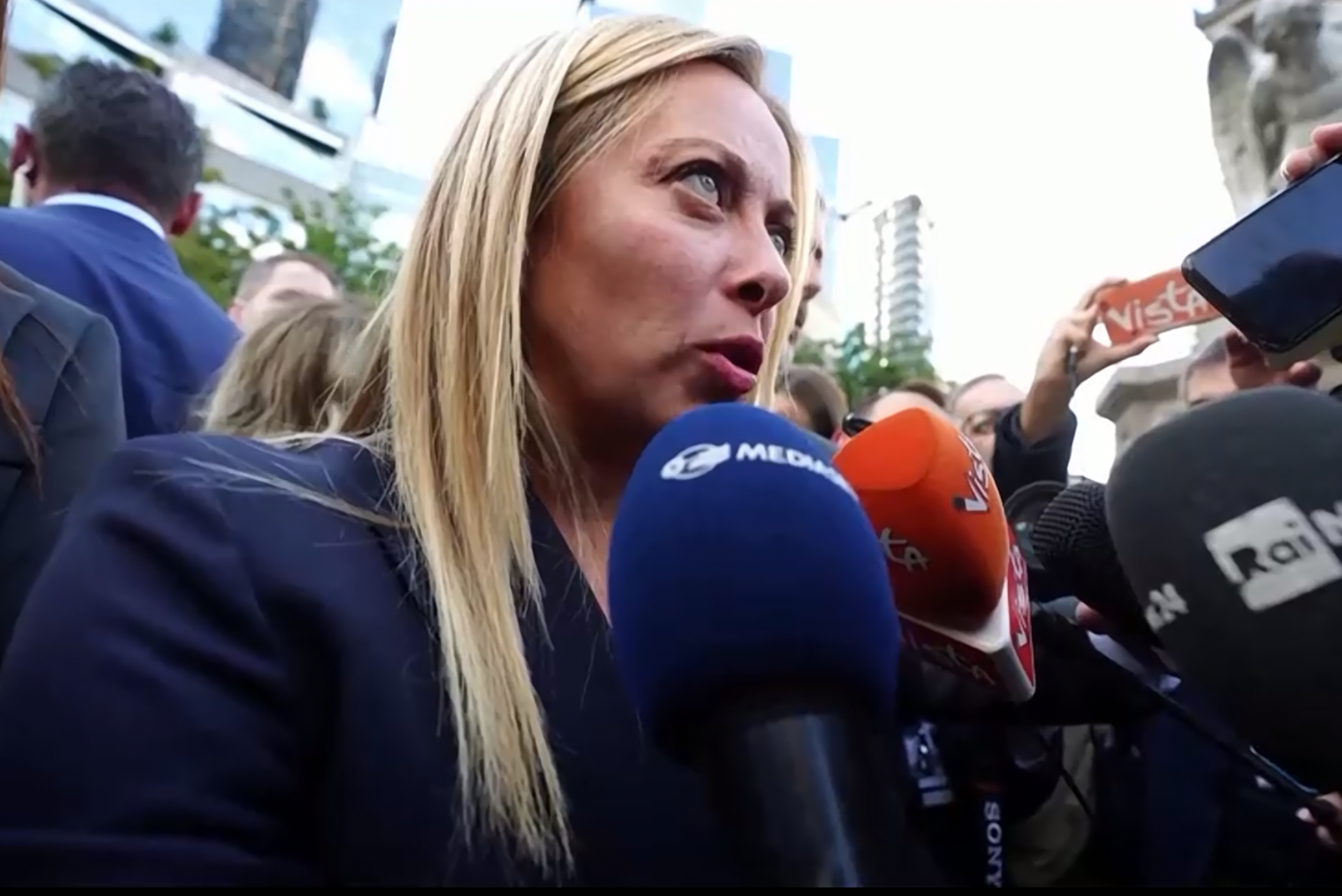Addressing the UN General Assembly in New York on Wednesday (20th September), Italy’s Prime Minister, Georgia Meloni, said she would not allow Italy to become ‘Europe’s Refugee camp’.
Her address followed a visit to the Italian island of Lampedusa on Sunday (18th September), accompanied by the European Commission President, Ursula von der Leyen. The visit to Lampedusa was prompted as the small island recorded a dramatic surge in numbers of migrants arriving, with an estimated 8,000 new migrants arriving on the island from Tunisia (mostly), in just over two days of last week, to an Island whose entire indigenous population is below the number of this week’s arrivals.

Following the visit, the Italian Prime Minister, Georgia Meloni, put out a call for Europe to deal with the crisis with a fresh multilateral approach, which she insisted should have UN involvement.

During her election campaign last October, Meloni had made illegal migration a central plank of her manifesto pledges, saying that ‘the future of Europe is at stake’ unless EU countries work together to come up with ‘serious solutions’.
Multilateral approach is the only solution
Speaking to the press outside the UN Assembly this week, Meloni spoke again of the need for collective responsibility for the problems of migration. She said:
‘Immigration is a phenomenon that must be tackled with a mutilateral approach involving the UN…that is fundamental…this is not a matter which concerns only Italy. Despite the efforts it continues to make, Italy cannot solve the problem alone…the only way is to declare war on the traffickers with the support of the entire multilteral system and the will of all nations’
She added:
‘There is also serious work that must be done in Africa, a continent that is experiencing very difficult conditions and which the attitude of Europe and the West has not always been correct’
True to her right of centre political position, she placed her emphasis more on preventing migrants from travelling to Europe rather than what she said was a plan to redistribute them in Europe.
EU Commissioner lays out a ten point plan to relieve pressure on Italy
The EU Commission President, Ursula von der Leyen, set out a 10 point action plan to relieve pressure on Italy – where most migrants arrive from North Africa’s shores by boat. At a press conference during her visit on the island of Lampedusa, she said:
‘I came here to say to all of you again, migration is a European challenge and it needs a European answer and solution. It is complete actions that will bring change on the ground. It is only through solidarity and unity that we can achieve this and you can count on the European Union’
De Leyen’s proposals include using the EU’s external borders agency Frontex to identify migrants in Italy and repatriate those not eligible for asylum. In the press conference she asserted her determination to seize control of the migration crisis and she vowed to increase access to legal channels for the migrants to reduce smuggling. She said:
‘We will decide who comes to the European Union and under what circumstances and not the smugglers and traffickers…the most effective measure to counter the smugglers lies are legal pathways and humanitarian corridors. We will offer migrants real alternatives through this humanitarian admission process’
The migrants for the most part do not remain on the island of Lampedusa for lengthy periods, with the majority of refugees arriving in Lampedusa, being eventually transferred to overcrowded reception centres in Sicily. In that sense, Lampedusa is more of a landing and transit base. However locals have become increasingly frustrated with the numbers and the effect their presence is having on the tourist industry. Large numbers of residents staged protests against plans to construct additional tent camps to host migrants, in time to coincide with the visit.
Lampedusa has become the Migrant ‘hotspot’ of Europe
Over the last decade, Lampedusa has achieved the status of being branded the so-called migrant “hotspot” of Europe and has struggled to cope with the constant flow of arrivals and the resultant shortages of water, food and medical care.

Numbers of migrants doubled in the last 12 months
So far this year, there have been over 126,000 undocumented arrivals, more than double than in the previous 12-month period. The latest influx has occurred despite the €105 million border management migration deal signed off in July with Tunisia’s President Kais Saied, and the additional €1billion in economic support loans granted to the country. Yet the numbers of migrants crossing the Mediterranean seems to be on the increase.
It would seem that the situation has become desperate enough for members of the European Union to feel comfortable with turning a blind eye to the growing repression of human rights suffered by the migrants held on Tunisia’s shores, where asylum seekers and refugees have been subject to a harsh migrant policy regime. Instances of migrants being forcibly moved across the border into Libya and left in harsh hostile desert areas without food and water by Tunisian police, have been widely reported, Notwithstanding this, there has been little public condemnation from EU leaders. The July agreement, apparently includes no human rights conditions or any assessment or monitoring process. Crucially, there is no mechanism to suspend cooperation in the event that abuse takes place.
Many have wondered whether any lessons have been learned by the EU, in respect of its earlier cooperation deal with Libya, which a UN Report later revealed provided for a catalogue of abuses at the hands of Libya’s security forces, who subjected migrants to torture, rape, enforced disappearances, unlawful killings and arbitrary detention.












